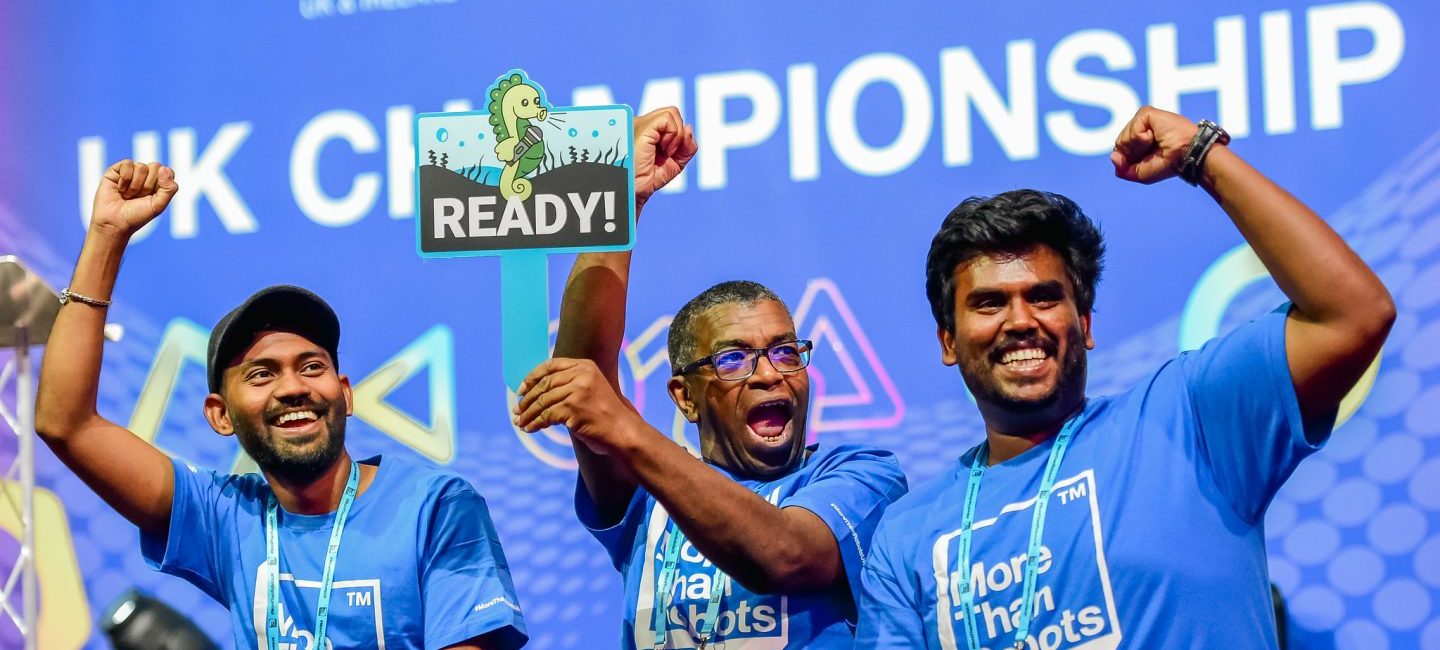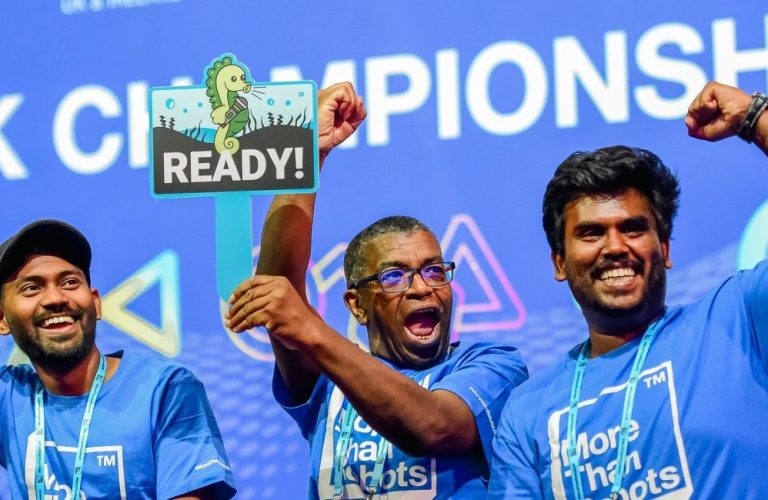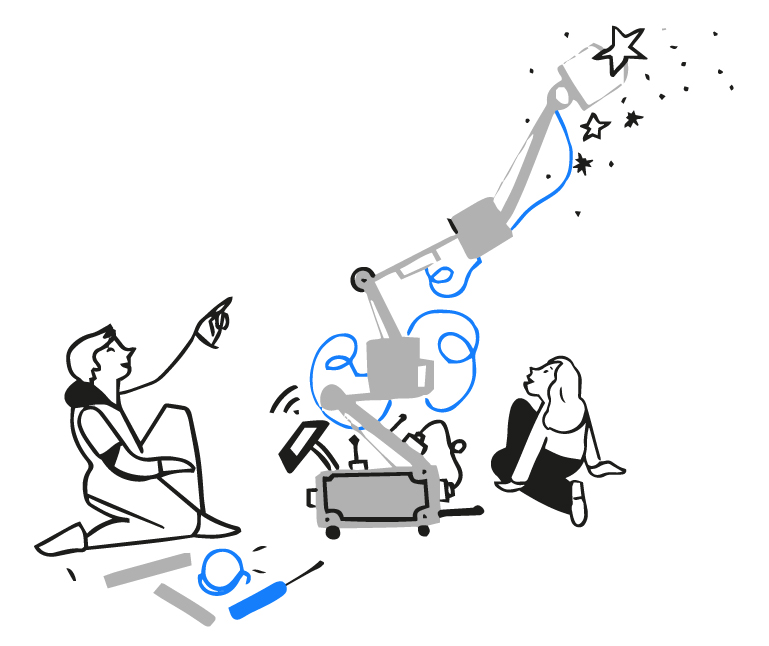Our mission
We’re committed to making STEM less intimidating, more diverse and inclusive


We’re committed to making STEM less intimidating, more diverse and inclusive
Automation, data, artificial intelligence and digital technology are driving change at an unprecedented rate. We’re not evolving how we educate young people at the same pace. As the STEM skills gap widens, we risk leaving young people unequipped to take on tomorrow’s challenges.
At FIRST UK, we bridge the classroom with the workplace – using robots, competitions and industry role models as a vehicle for change.

Leaning on programmatic evidence and insights of young people, educators and advisors, we’ve made excellent progress in moving from mass STEM enrichment to targeted provision for those who will benefit most.
 Mission
MissionTo make STEM less intimidating, more diverse and inclusive, empowering young people to make informed choices about their future.
 Vision
VisionA world where young people are empowered to explore, challenge and grow into innovators, who will take on tomorrow’s challenges.
Our values are more than words. They are what guide us as an organisation to achieve our mission.

We continually learn from our experiences and others to develop interventions which meet the needs of the young people we serve.
We follow an evidence-based pathway to impact that demonstrates transformative outcomes.
We step up and challenge what isn’t working, using our knowledge and network to achieve success.
We work with innovative organisations in STEM who want to empower a generation to realise their potential.
We operate in an agile and effective way, trusting in those we work with, to achieve impact at pace.
We lead as positive examples to the rest of the community.
“Out-of-school programmes are a really important part of the ecosystem for supporting young people. They offer a chance for sustained engagement that isn’t a one-off session in a day, involving problem-solving, teamwork and other skills, which are really valuable.
STEM is not just a destination but a really important and empowering vehicle that can really help young people and communities achieve their potential, in a more cohesive, productive and socially just society.”
Prof. Louise Archer, Karl Mannheim Chair of Sociology of Education, Institute of Education, UCL